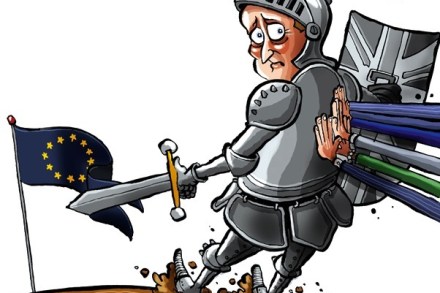Extended version: Our interview with Owen Paterson
As promised by Fraser earlier, here is an extended version of James’s interview with Owen Paterson that we posted yesterday: It is becoming increasingly clear what the Conservative party expects of its Prime Minister. If he is going to agree to 17 eurozone countries pushing ahead with the Franco-German plan for fiscal union, he needs to secure a new deal for Britain in exchange. Just what this new deal should look like is a matter of intense debate in Conservative circles. If France and Germany turn the eurozone into a ‘fiscal union’, what does that mean for Britain’s standing in the European Union? At the weekend, Iain Duncan Smith suggested that the nature of
















